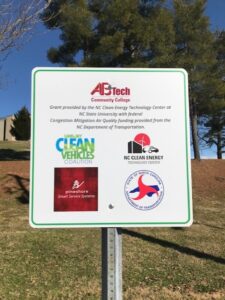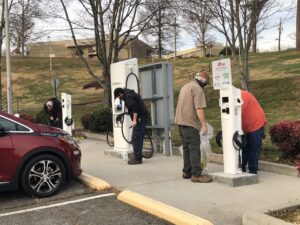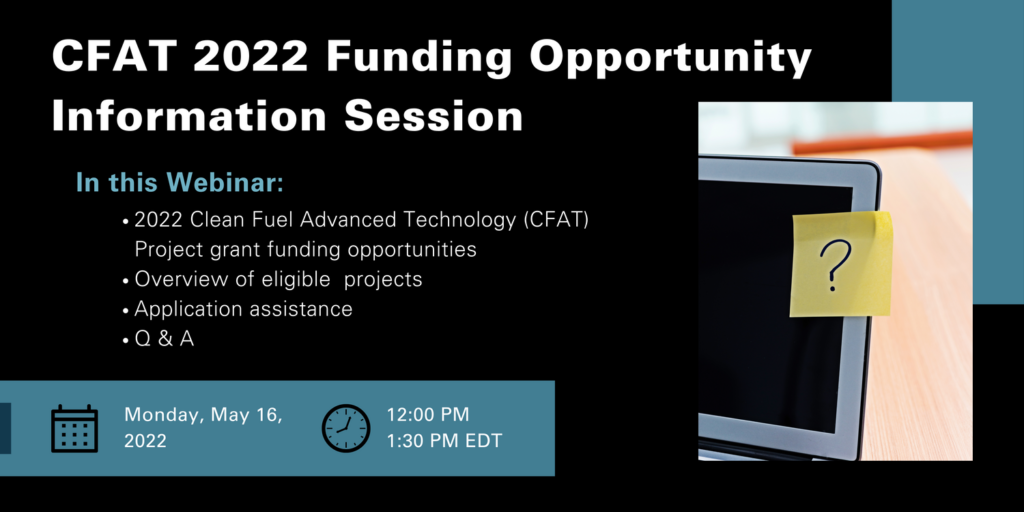 Asheville-Buncombe Technical Community College (A-B Tech) has successfully transformed its electric vehicle (EV) charging facilities, turning a once underutilized resource into a bustling hub for clean transportation. Thanks to a CFAT grant, A-B Tech’s upgraded charging stations, including the rapid DC Fast Charger, have seen a significant surge in usage, reflecting the community’s growing commitment to sustainable practices and the college’s role in fostering this shift. This initiative was made possible through a grant awarded by the Clean Fuel Advanced Technology (CFAT) project, administered by the North Carolina Clean Energy Technology Center (NCCETC), showcasing A-B Tech’s commitment to environmental responsibility.
Asheville-Buncombe Technical Community College (A-B Tech) has successfully transformed its electric vehicle (EV) charging facilities, turning a once underutilized resource into a bustling hub for clean transportation. Thanks to a CFAT grant, A-B Tech’s upgraded charging stations, including the rapid DC Fast Charger, have seen a significant surge in usage, reflecting the community’s growing commitment to sustainable practices and the college’s role in fostering this shift. This initiative was made possible through a grant awarded by the Clean Fuel Advanced Technology (CFAT) project, administered by the North Carolina Clean Energy Technology Center (NCCETC), showcasing A-B Tech’s commitment to environmental responsibility.
The CFAT project channels federal Congestion Mitigation Air Quality funding annually from the NC Department of Transportation (DOT). NCCETC has been at the forefront of managing CFAT funding since 2006, distributing $11.9 million in federal funds to facilitate the adoption of clean transportation technologies across North Carolina. This effort aims to enhance air quality and reduce emissions associated with transportation throughout the state.
In 2019, A-B Tech sought CFAT funding to address the need for replacement of three EV charging ports originally installed in 2015 through a collaborative partnership with Nissan, Land of Sky Clean Vehicles Coalition, Duke Energy, and EATON. While these initial chargers served the EV charging needs of the Western NC community for several years, they became inoperable and were no longer serviceable by the manufacturing company.
 With the CFAT grant, A-B Tech successfully upgraded and replaced the nonfunctional chargers. The new infrastructure includes two BTCPower Dual Port Level 2 chargers and one Direct Current (DC) Fast Charger. The DC Fast Charger is particularly noteworthy as it allows drivers to rapidly charge their vehicles in minutes, a crucial feature that supports the growing adoption of EVs.
With the CFAT grant, A-B Tech successfully upgraded and replaced the nonfunctional chargers. The new infrastructure includes two BTCPower Dual Port Level 2 chargers and one Direct Current (DC) Fast Charger. The DC Fast Charger is particularly noteworthy as it allows drivers to rapidly charge their vehicles in minutes, a crucial feature that supports the growing adoption of EVs.
Furthermore, A-B Tech’s commitment to sustainability extends to the general public, as the charging stations are open for use and incur minimal costs. Initially popular due to their accessibility from downtown Asheville, the Biltmore estate, and Mission Hospital, A-B Tech’s charging stations faced a decline in usage in 2017, 2018, and 2019 due to the unreliability of the Electric Vehicle Service Equipment (EVSE).
The replacement of all three chargers not only addressed this issue but also served to expand access and usage of the college’s EVSE. The charging stations were integrated into an NC Community Colleges EVSE continuous monitoring system which will record operation and usage data for all networked stations. This development enabled A-B Tech to establish a new technology tracking system and pricing structure, marking a significant step forward in the College’s broader plans to reduce emissions campus-wide.
“The fast charger at AB tech isn’t just a power source; it’s a catalyst for the future of electric vehicle evolution. It’s the spark that ignites convenience, accessibility, and paves the way for exponential EV growth,” said Ian Baillie, a Regional Planner for the Land of Sky Regional Council.
Baillie added, “Our region is increasing it’s EV adoption at a faster pace than fast charging infrastructure is being implemented.” EV registration in Buncombe County has more than doubled from August 2021 to August 2023, according to Baillie.
“AB-Tech has a convenient location for residents and visitors that helps close gaps across the region,” Baillie stated. Following the installation of the charging stations in 2021, a successful public awareness and education campaign helped drive an increase in the utilization of the chargers. Over 400 charging sessions of both the DC Fast Charger and Level 2 chargers were recorded over the year.
The utilization of these charging stations has continuously increased, with more than 760 charging sessions recorded in 2023. The fourth quarter of 2023 saw a notable jump in demand, with a 47% increase in Kilowatt Hours (kWh) and a 22% increase in sessions.
When asked to comment on this significant growth, Dirk Wilmoth (A-B Tech’s Vice President for Business and Finance) said, “I think awareness of our location is increasing, along with the demand from more e-vehicles on the road locally.”
A-B Tech’s strategic collaboration with the CFAT project has not only revitalized its EV charging infrastructure but has also positioned the College as a leader in sustainable transportation solutions. With reliable and advanced charging options, A-B Tech is poised to play a pivotal role in shaping a cleaner and more sustainable future for the Asheville community and beyond.
Stay updated and learn more about CFAT funding and selected projects here.


